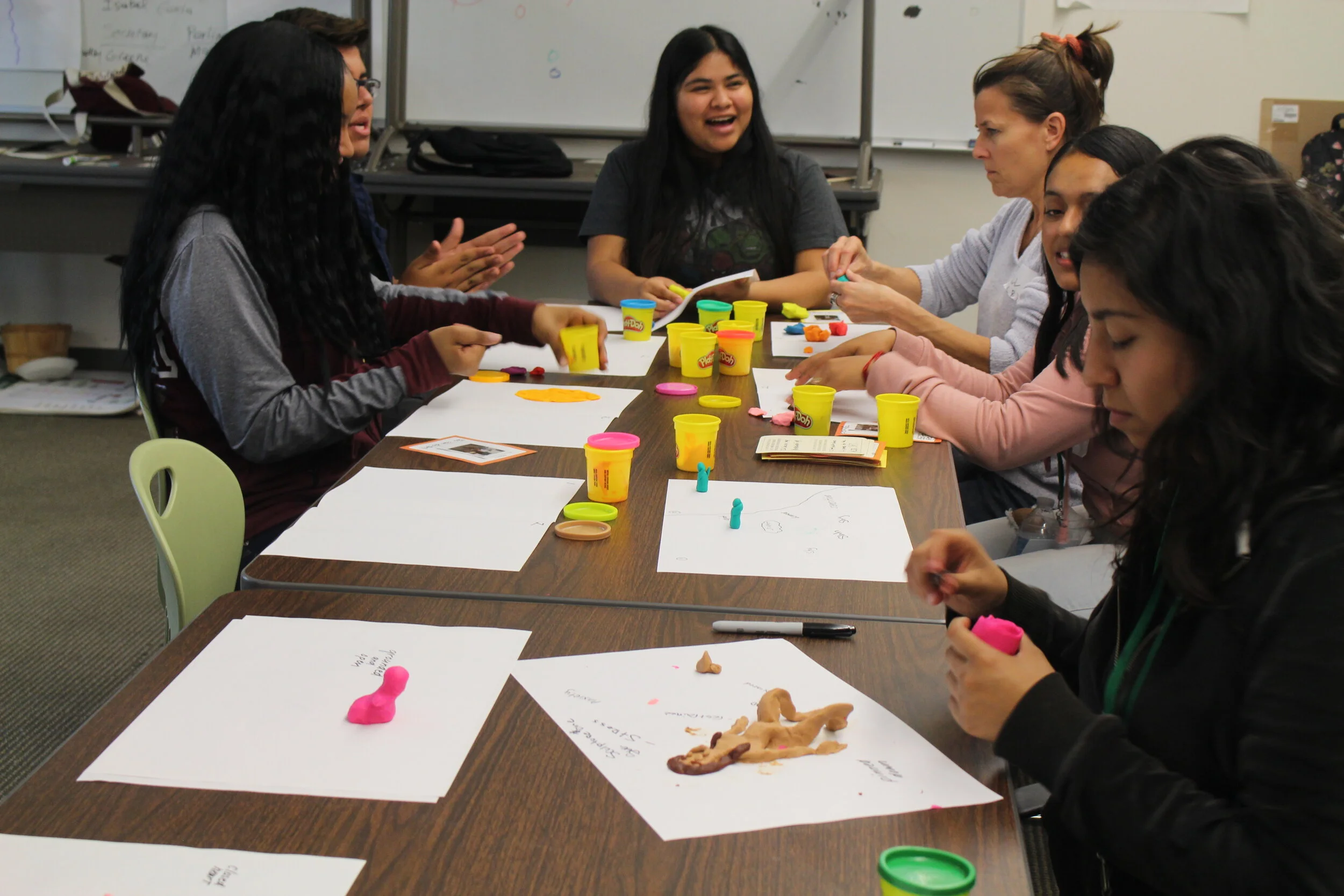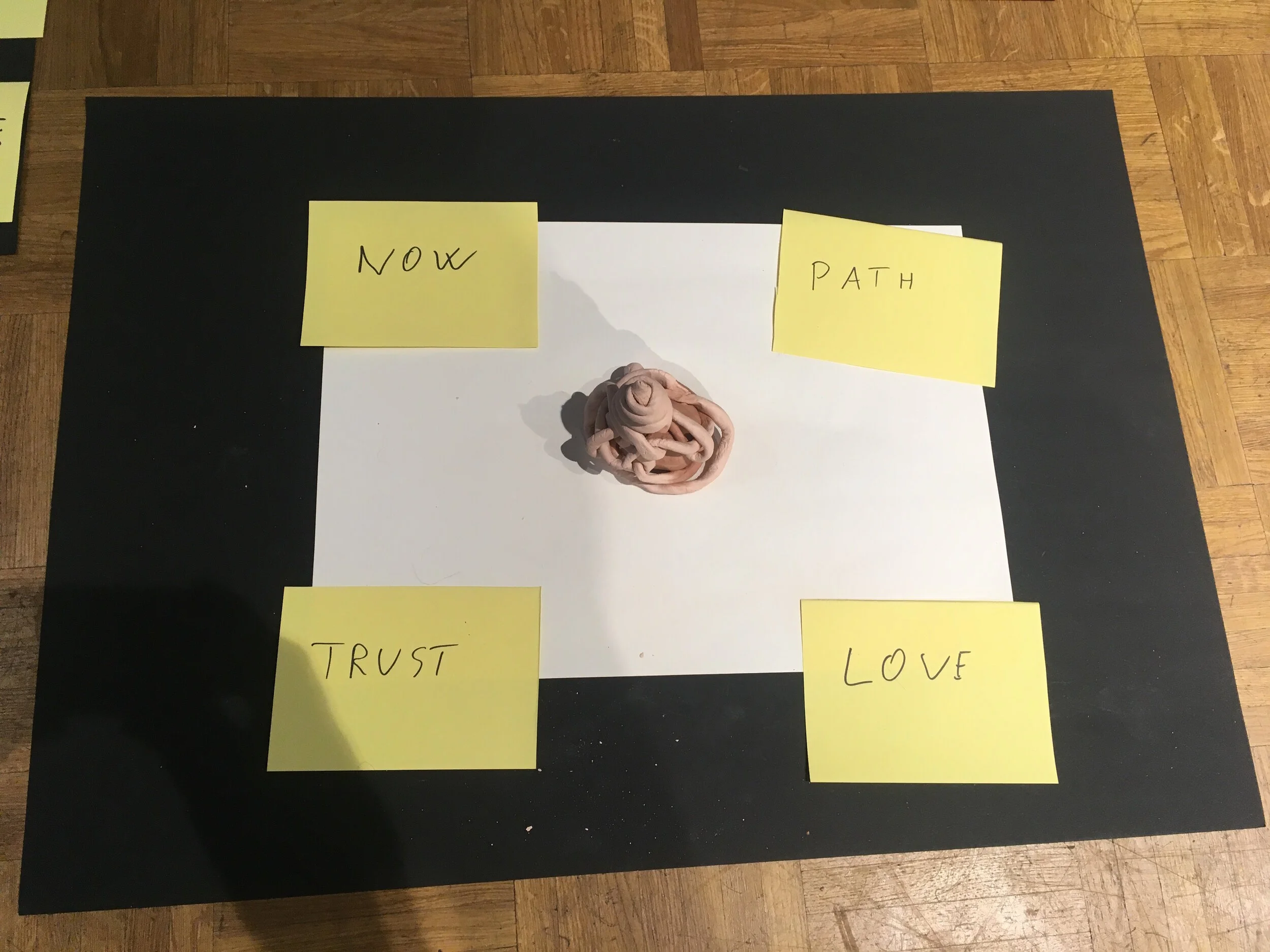Making Social Systems Visible
making visible social shifts through embodiment, photography, and design
Role: Design Researcher & Faculty | Project: Research on Social Field Shifts, at the Presencing Institute (MIT)
Team: Arawana Hayashi, Otto Scharmer and Ricardo Dutra
Video: Case studies of application of Social Presencing Theater in Education.
At the Presencing Institute (MIT), a core research methodology we have been testing and using is called Social Presencing Theater (SPT), which is based on embodied knowing. This means stakeholders of a system engage in a deeper dialogue through embodying certain aspects of the system they operate in.
“The eye gaze, hands and upper body are forward; the pelvis and legs are in back of the upper body and rooted in place, as though someone is holding the back at about the waist or hip level.”
The method draws on the arts and contemplative traditions and is described as an awareness-based action-research approach. This is the first year of the project and we have so far engaged specifically with the education system – using SPT to investigate patterns in the school system (i.e. teacher stress, student behavior, teachers working in silos, etc.). We are currently conducting a series of research prototypes with various schools, government and foundations in Los Angeles, California.
Images: K12 teachers from LA County Office of Education teachers are introduced to Social Presencing Theater.
Our research approach is embodied and design-led. Following embodied practices, We introduce awareness-based probes, supported to support description, reflection, and application of insights emerging from the group practice of Social Presencing Theater. For instance, some of the research probes currently being prototyped include: a deck of cards to help a group describe the aesthetic qualities of their embodied experience; using tangible materials such as clay and play-doh to sense-make one's embodiment; writing postcards from one’s embodied experience; going through the sense-making process of naming the experience and writing back to oneself about it; etc.
aesthetic quality cards
Image: Aesthetic Language Cards – giving language to pre-verbal experience.
The Aesthetic Language cards can be bought here:
sense-making one's embodied experience through journey maps and postcards
“Dear J., express more and stretch out. Don’t blame yourself for everything.”
pattern-finding with play-doh and Clay
Image: play-doh and clay help participants work with their hands to give form to an intangible quality of their experience.
Video and story-telling
Video: Stories of application on K12 education. Video by Aaron Lemle. Interviews & Content: Ricardo Dutra, Arawana Hayashi and Adam Yukelson.
For more research updates:
www.presencing.org/research/social-presencing-theatre
references:
Varela, F. (2000). Three gestures of becoming aware.












